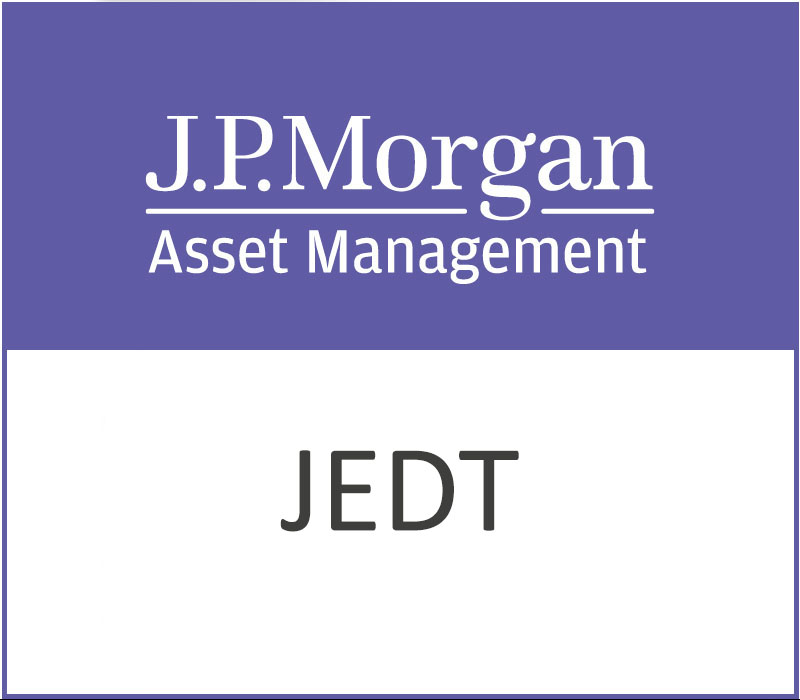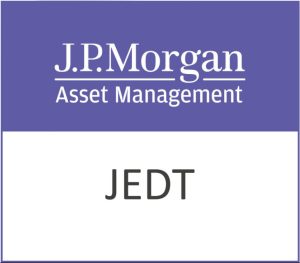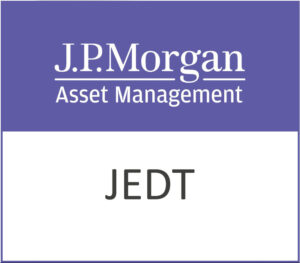JPMorgan European Discovery Trust plc (LON:JEDT) has announced its half year report and financial statements for the six months ended 30 September 2022.
CHAIRMAN’S STATEMENT
Dear Shareholder,
I hereby present the Company’s results for the half-year ended 30th September 2022.
Performance
European markets have faced a challenging environment during recent months, dominated by significant geo-political uncertainty and heightened market volatility. Following the Covid-19 pandemic, supply side bottlenecks and consequential rising prices have been further stressed by the tragic events following Russia’s invasion of Ukraine. Food supplies and energy needs affected by the disruption have become key concerns. It has had a material adverse short-term impact on the value of our portfolio. However, the longer-term performance of our portfolio remains strong.
During the half year to 30th September 2022, the Company recorded a total return on net assets of -18.1%, with the Company’s benchmark index, the MSCI Europe (ex UK) Small Cap Index, returning -19.3% over the same period. The total return to shareholders was -19.8%, reflecting a slight widening of the discount at which the Company’s shares trade from 14.4% to 16.5% over the six months.
The Company’s longer term performance with the 5 year and 10 year total return on net assets was 3.9% and 202.7%, respectively, whilst the benchmark total return was 9.1% and 171.4%. The Investment Managers’ Report that follows provides a review of markets, more detail on the performance drivers within the portfolio and the outlook for investing.
Revenue and Dividends
Net revenue return for the six months to 30th September 2022 was higher than the corresponding period in 2021 at 10.43 pence per share (2021: 6.57 pence). The Board has decided to maintain the interim dividend of 1.2 pence (2021: 1.2 pence) per share which will be paid on 3rd February 2023 to shareholders on the register as at 23rd December 2022 (the ex-dividend date will be 22nd December 2022). The Board will keep this under review and take into account the income received and the level of the Company’s revenue reserves when determining the final dividend for the year in 2023.
Discount Management and Share Repurchases
The Board continues to monitor closely the level of the discount and considers its ability to repurchase shares to minimise the short term volatility and the absolute level of the discount of prime importance. 995,000 shares were repurchased in the six months to 30th September 2022. No shares have been repurchased since the period end.
The Board
In line with the Board’s succession planning, the intention had been for Ashok Gupta to stand down at this year’s AGM, having served on the Board for nine years. However, in light of some of the recent changes in the Board composition, the Board agreed that it would be appropriate for the Company to continue to benefit from Ashok’s extensive industry experience for a further few months.
No changes were made to the Board in the reporting period.
Environmental, Social and Governance (‘ESG’)
As highlighted in the 2022 Annual Report, the Board has continued to engage with the Manager on the integration of ESG factors into its investment process. While the investment managers have always considered environmental, social and governance (‘ESG’) issues in their investment process, it is now rigorously integrated into their investment processes so that ESG issues are considered at every stage of the investment decision. For more details, please refer to pages 21 to 23 of the 2022 Annual Report which can be found on the Company’s website at: www.jpmeuropeandiscovery.co.uk
Outlook
Geopolitical tensions, elevated market volatility, and the fastest pace of central bank tightening in decades are meaningful economic headwinds contributing to an unusually uncertain environment at the moment. In Europe, inflation is being acutely felt as the Russia-Ukraine conflict has pushed gas prices to new highs, triggering a cost of living crisis. It seems probable that equity markets will continue to struggle until higher interest rates appear to be working and bringing inflation under control. Nonetheless, European equities continue to trade at a discount to global peers, providing attractive investment opportunities for our Portfolio Managers. It is likely that the macroeconomic
environment may remain uncertain over the coming months, however, the Portfolio Managers’ approach to dealing with an uncertain economic and geo-political environment should continue to serve shareholders well.
Marc van Gelder
Chairman
INVESTMENT MANAGERS’ REPORT
Review
Equity market weakness continued in the six months to September 2022 as inflationary pressures remained high. Several factors contributed to inflation including the Russian invasion of Ukraine, continued supply chain disruptions exacerbated by China’s Zero-Covid policy, and a normalisation of demand post Covid-19 related lockdowns.
The benchmark MSCI Europe (ex UK) Small Cap NR Index fell by 19.3 per cent, underperforming the large cap MSCI Europe (ex UK) NR Index which fell 10.5 per cent.
Portfolio
The NAV of the portfolio decreased by 18.1 per cent over the period, outperforming its benchmark by 1.2 per cent.
Contributors to performance included the French market research company, Ipsos, after the company continued to report a very strong order backlog as high global macroeconomic uncertainty resulted in high demand for customer insights. The Company also continued to benefit from its strong tilt towards the sustainability theme. Investments in the European cable manufacturers, Pysmian, Nexans and NKT (Italian, French and Danish listed), continued to outperform supported by very high demand for electrification. French Engineering company, Spie, also fits into this category as it is focused in rolling out the practical solutions required to electrify infrastructure.
As in the previous period, detractors from performance were predominantly past ‘high quality growth’ winners that continued to see significant multiple contraction due to rising bond yields. Underperformers include Belgian warehousing companies, Warehouses De Pauw and VGP. The German forklift truck manufacturer, Kion, detracted from performance as it was unable to pass on cost inflation in a number of its long term projects. Inflation has also weighed on consumer demand which has been a headwind for companies such as Danish audio solutions manufacturer, GN Store Nord and French animal pharmaceutical company, Virbac.
During the period we took advantage of significant valuation deratings to purchase a number of attractive high quality companies which now trade on significantly lower valuations. These included Italian diagnostics company, DiaSorin, Italian pure play renewables company, ERG, whose high exposure to spot power prices directly benefited the company given the European energy situation, and Finnish consumer packaging producer, Huhtamaki, whose margins are likely to benefit from falling raw material prices and continued strong demand for their sustainable solutions.
To fund these purchases sold out of several companies which are likely to be impacted by the current uncertain macroeconomic environment and high energy prices. These include industrial companies Indutrade, Pirelli, Rexel, and Belimo.
Communication Services rose to become the largest sector overweight. This shift was a result of the outperformance of Ipsos, the French market research company mentioned above, and a reduction in the Industrials overweight. This reduction was a result of the sale of several of the Company’s more macroeconomically exposed investments such as the Dutch manufacturer of energy-efficient lighting solutions, Signify, and Italian premium tyre manufacturer, Pirelli. Financials and Energy were the largest underweights.
France and Italy remained the two largest country overweights, while Norway and Germany remained the two largest underweights.
At the end of September, the net cash was -4.16%.
Outlook
We started the year believing (like many market participants) that inflation would prove to be transitory. The sad events in the Ukraine and more recently the lockdowns in China make it highly unlikely that the high levels we are currently seeing will quickly revert to Central Bank targets. The positive aspect of equities, unlike bonds, is that there are companies and sectors that can still perform in inflationary environments and those are the companies which we have been increasingly investing in. For instance, companies with high barriers to entry and pricing power should be able to pass on inflation. Certain areas of insurance combine a positive exposure to rising bond yields and defensive business models. Companies who see demand greatly exceeding their potential to supply, such as the high voltage cable manufacturers, or those companies exposed to the electrification theme, should also find themselves well placed to raise their prices.
While it is difficult to predict when the current inflationary environment will end, historically European smaller companies have been one of the best performing asset classes globally, and we do not see the fundamentals that drove this changing. Innovation has powered smaller companies and will continue to do so long into the future. As always it is our job to uncover these opportunities.
Francesco Conte
Edward Greaves
Investment Managers
INTERIM MANAGEMENT REPORT
The Company is required to make the following disclosures in its half year report:
Principal Risks and Uncertainties
The principal and emerging risks and uncertainties faced by the Company fall into the following broad categories:
investment underperformance and strategy; market and currency; accounting, legal and regulatory; operational;
cyber-crime, financial, corporate governance and shareholder relations, climate change and emerging risks.
The Board has reviewed the principal risks and uncertainties, reported in the Annual Report and Financial Statements for the year ended 31st March 2022, and concluded that the emerging risks identified within that Annual Report in respect of geopolitical and global recession are now principal risks. In the view of the Board, these principal risks and uncertainties are as much applicable to the remaining six months of the financial year as they were to the six months under review.
Related Parties Transactions
During the first six months of the current financial year, no transactions with related parties have taken place which have materially affected the financial position or the performance of the Company.
Going Concern
In accordance with The Financial Reporting Council’s guidance on going concern and liquidity risk, including its Covid-19 guidance, the Directors have undertaken a rigorous review of the Company’s ability to continue as a going concern. The Board has, in particular, considered the impact of heightened market volatility since the Covid-19 outbreak and more recently the Russian invasion of Ukraine, but does not believe the Company’s going concern status is affected. The Company’s assets, which are investments in quoted securities which are readily realisable, exceed its liabilities significantly under all stress test scenarios reviewed by the Board. Gearing levels and compliance with borrowing covenants are reviewed by the Board on a regular basis. Furthermore, the Directors are satisfied that the Company and its key third party service providers have in place appropriate business continuity plans. Accordingly, having assessed the principal and emerging risks and other matters, the Directors believe that there are no material uncertainties pertaining to the Company that would prevent its ability to continue in such operational existence for at least 12 months from the date of the approval of this half yearly financial report.
Directors’ Responsibilities
The Board of Directors confirm that, to the best of its knowledge:
(i) the condensed set of financial statements contained within the half-yearly financial report has been prepared in accordance with FRS 104 ‘Interim Financial Reports’ and gives a true and fair view of the state of affairs of the Company and of the assets, liabilities, financial position and net return of the Company, as at 30th September 2022, as required by the UK Listing Authority Disclosure Guidance and Transparency Rules 4.2.4R; and
(ii) the interim management report includes a fair review of the information required by 4.2.7R and 4.2.8R of the UK Listing Authority Disclosure Guidance and Transparency Rules.
In order to provide these confirmations, and in preparing these financial statements, the Directors are required to:
· select suitable accounting policies and then apply them consistently;
· make judgements and accounting estimates that are reasonable and prudent;
· state whether applicable UK Accounting Standards have been followed, subject to any material departures disclosed and explained in the financial statements; and
· prepare the financial statements on the going concern basis unless it is inappropriate to presume that the Company will continue in business;
and the Directors confirm that they have done so.
For and on behalf of the Board
Marc van Gelder
Chairman, JPMorgan European Discovery Trust plc



